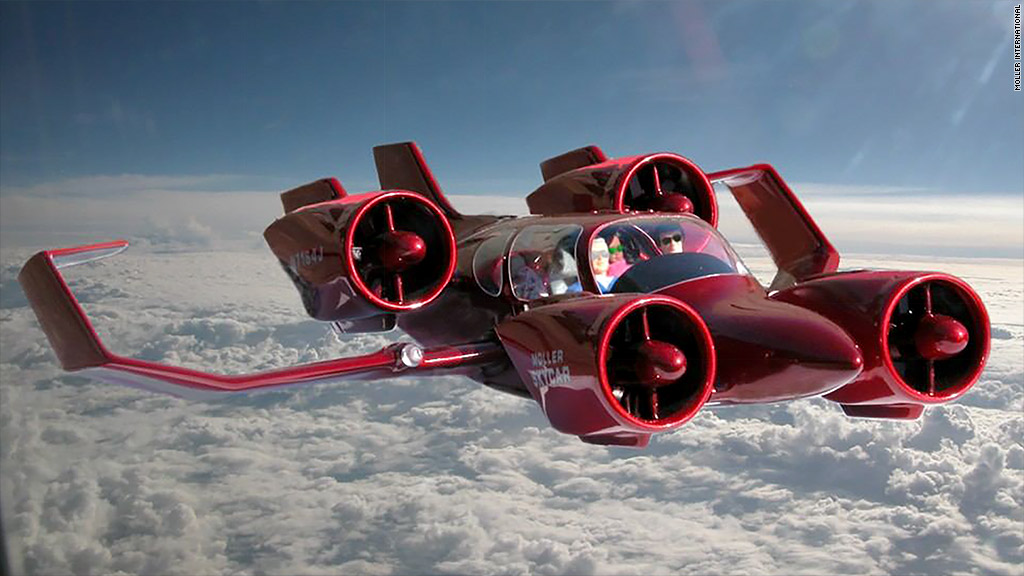
Get ready for flying cars to take off in 2017... Maybe.
A surprising number of small companies around the world are vying to be the first to bring flying cars to customers, and many are predicting that 2017 will be a turning point for the industry.
Terrafugia, AeroMobil, Moller International and PAL-V are just a few of the companies that are planning to produce, sell and deliver their vehicles within the next few years.
Terrafugia, an American firm founded by MIT grads, expects to start production of its "Transition" flying car in 2017. It's already accepted deposits from roughly 100 customers.
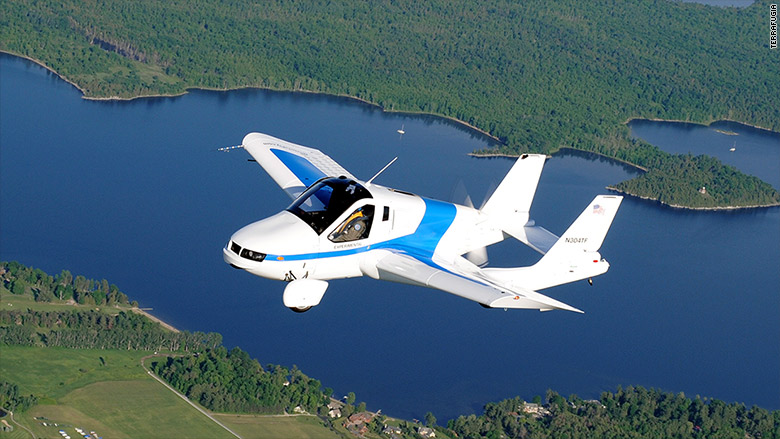
Slovakian firm AeroMobil plans to finalize its flying car design and begin accepting deposits in 2017.
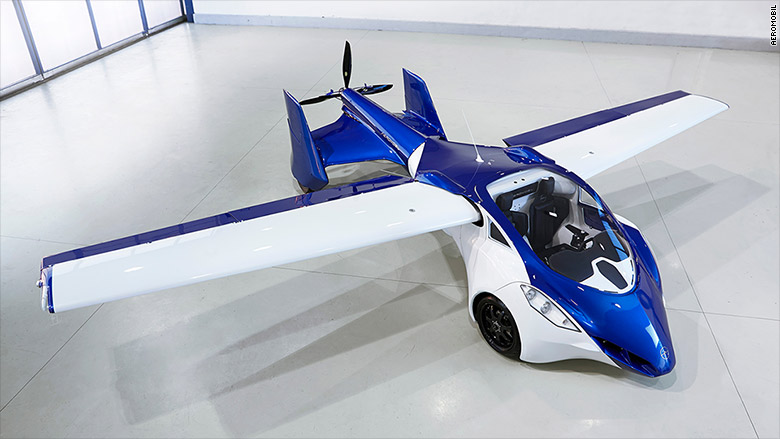
PAL-V from the Netherlands has already begun taking orders for its vehicle, and expects deliveries to begin in the spring of 2017.
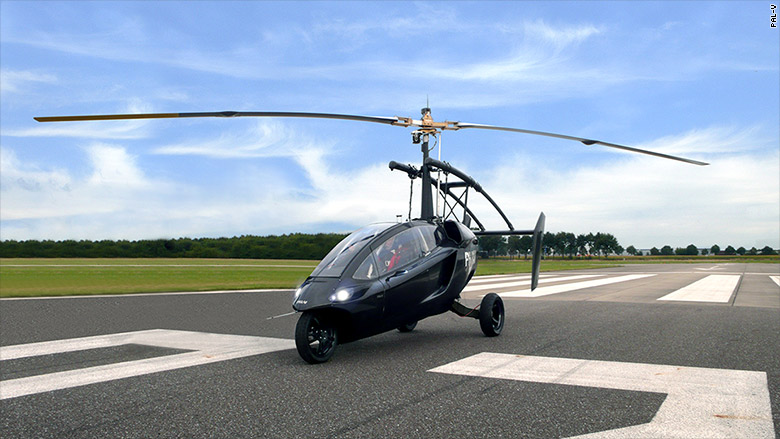
And California-based Moller International has begun accepting deposits and says it could begin selling its flying vehicles next year, provided the U.S. Federal Aviation Administration grants the necessary regulatory permissions.
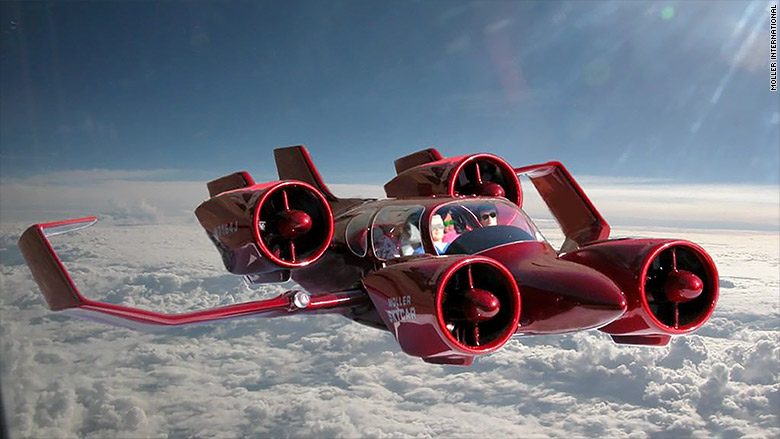
These firms all have high hopes for the future, but various major roadblocks could keep them from reaching their near term goals.
Many companies have previously predicted they'd start selling their vehicles in a year or two, only to delay their plans again and again.
As it stands, regulators are the main reason flying cars are kept off the roads and out of the skies.
The vehicles have to pass numerous tests to prove they're road ready and fit to fly. Getting all the necessary aviation, road and transportation certifications can take ages.
"Building something that works is different than [building] something that's allowed," said Robert Dingemanse, CEO of PAL-V, who said his gyrocopter-style vehicle meets all the necessary road and air regulations in Europe and the U.S.
While these regulations may seem like a hindrance to the casual observer, they are designed to keep everyone safe in the air and on the ground.
Case in point: In early May, the AeroMobil 3.0 prototype crashed during a test flight. The pilot was unharmed, but the situation clearly demonstrates the importance of careful regulation and strict safety certifications.
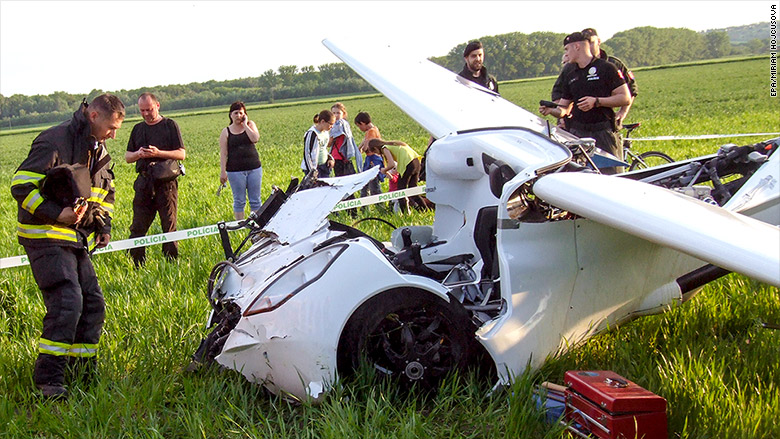
The company told CNNMoney the crash will not delay its ambitious goal to start delivering vehicles by 2017. It's already begun fixing the current prototype and constructing a new one.
Related: This new electric 'hypercar' boasts 1,341 horsepower
Aside from regulatory and safety concerns, a lack of funding can also seriously hamper progress, or stop it altogether.
AeroMobil recently accepted a €2.5 million ($2.8 million) investment from a venture capital firm, after being financed entirely by its CEO and co-founder Juraj Vaculik. Executives at the firm expect to sign up further investors in the immediate future, despite the recent crash.
Paul Moller, the founder of Moller International, said he's spent roughly $200 million since the 1970s developing his flying vehicles. He expects he could always find more money.
"There's a lot of money in this country. What you have to do is prove to people you have a product that has a future," he told CNNMoney.
Related: The rise of luxury vans
Another obvious challenge is finding customers. But flying car entrepreneurs seem unfazed, with some saying they'll target the military and law enforcement agencies, while others say they're aiming for rich individuals and business owners.
AeroMobil said it wants to tap the luxury market, targeting rich people who can afford to buy supercars and yachts.
"Early adopters will be these kinds of people [who] are looking for new technology, new excitement, and they like to have the most advanced transportation solutions," AeroMobil's CEO told CNNMoney.
Prices tend to hover around $300,000 level, but can vary widely. PAL-V CEO Dingemanse said he plans to sell his vehicles for €300,000 ($340,000) each, but he'll also offer a "limited edition" model for €500,000 ($566,000).
But anyone looking to buy a flying car has to realize that it won't be like The Jetsons show, where drivers zip around whenever they like.
Many of these flying planes will need runways for takeoff.
"If you can't take off vertically, you need an airport," said Moller.
Even Moller's vehicles, which are designed to take off vertically like drones, will require "vertiports," since they create too much wind for residential areas, he said.

